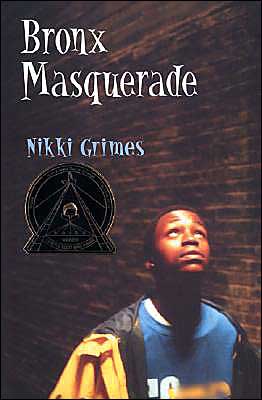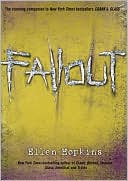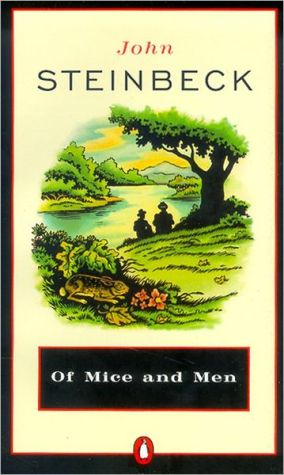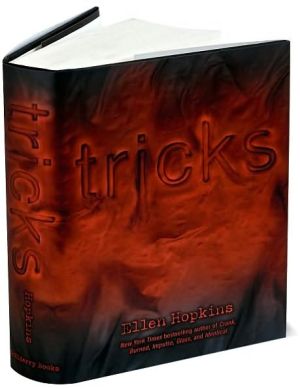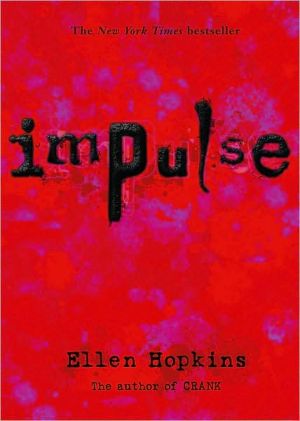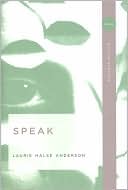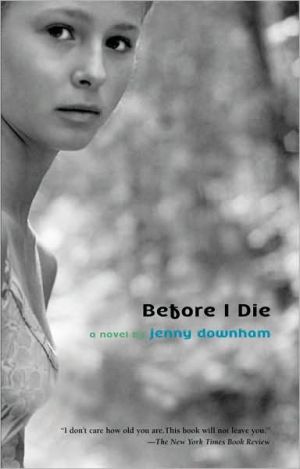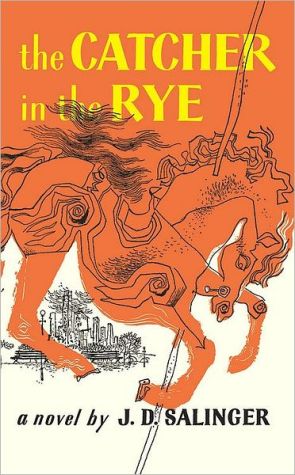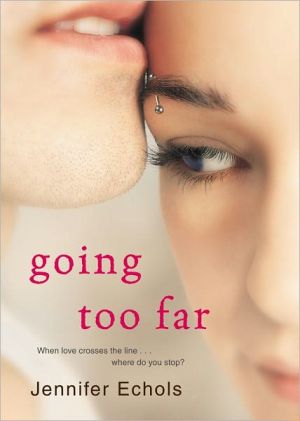Bronx Masquerade
Honoring ten years of a Coretta Scott King Award winner!\ Using the structure of a poetry slam, Nikki Grimes' award-winning novel is a powerful exploration of self, an homage to spoken-word poetry, and an intriguing look into the life of eighteen urban teens. This anniversary edition—celebrating ten years of this wonderfully evocative work—will feature discussion questions, testimonials from teachers, and an all new introduction from the author.\ \ \ While studying the...
Search in google:
When Wesley Boone writes a poem for his high school English class and reads it aloud, poetry-slam-style, he kicks off a revolution. Soon his classmates are clamoring to have weekly poetry sessions. One by one, eighteen students take on the risky challenge of self-revelation. Award-winning author Nikki Grimes captures the voices of eighteen teenagers through the poetry they share and the stories they tell, and exposes what lies beneath the skin, behind the eyes, beyond the masquerade.Publishers WeeklyA high school teacher in the Bronx hosts open-mike poetry in his classroom, and his students forge unexpected connections with one another. "The creative, contemporary premise will hook teens, and the poems may even inspire readers to try a few of their own," wrote PW. Ages 12-up. (Dec.) Copyright 2003 Reed Business Information.
Wesley “Bad Boy” Boone\ I ain’t particular about doing homework, you understand. My teachers practically faint whenever I turn something in. Matter of fact, I probably got the longest list of excuses for missing homework of anyone alive. Except for my homey Tyrone. He tries to act like he’s not even interested in school, like there’s no point in studying hard, or dreaming about tomorrow, or bothering to graduate. He’s got his reasons. I keep on him about going to school, though, saying I need the company. Besides, I tell him, if he drops out and gets a J.O.B., he won’t have any time to work on his songs. That always gets to him. Tyrone might convince everybody else that he’s all through with dreaming, but I know he wants to be a big hip-hop star. He’s just afraid he won’t live long enough to do it. Me, I hardly ever think about checking out. I’m more worried about figuring what I want to do if I live.\ Anyway, I haven’t had to drag Tyrone off to school lately, or make excuses for not having my homework done, because I’ve been doing it. It’s the Harlem Renaissance stuff that’s got us both going.\ We spent a month reading poetry from the Harlem Renaissance in our English class. Then Mr. Ward—that’s our teacher—asked us to write an essay about it. Make sense to you? Me neither. I mean, what’s the point of studying poetry and then writing essays? So I wrote a bunch of poems instead. They weren’t too shabby, considering I’d only done a few rap pieces before. My favorite was about Langston Hughes. How was I to know Teach would ask me to read it out loud? But I did. Knees knocking like a skeleton on Halloween, embarrassment bleaching my black cheeks red, eyes stapled to the page in front of me. But I did it, I read my poem.\ Guess what. Nobody laughed. In fact, everybody thought it was cool. By the time I got back to my seat, other kids were shouting: “Mr. Ward, I got a poem too. Can I bring it in to read?”\ Teach cocked his head to the side, like he was hearing something nobody else did. “How many people here have poems they’d like to read?” he asked. Three hands shot up. Mr. Ward rubbed his chin for a minute. “Okay,” he said. “Bring them with you tomorrow.”\ After class Teach came over to my desk. “Great poem,” said Mr. Ward. “But I still expect to see an essay from you. I’ll give you another week.” So much for creative expression.\ Long Live Langston by Wesley Boone\ Trumpeter of Lenox and 7th through Jesse B. Semple,\ you simply celebrated Blues and Be-bop and being Black before it was considered hip.\ You dipped into the muddy waters of the Harlem River and shouted “taste and see”\ that we Black folk be good at fanning hope and stoking the fires of dreams deferred.\ You made sure the world heard about the beauty of maple sugar children, and the artfully tattooed backs of Black sailors venturing out to foreign places.\ Your “Sweet Flypaper of Life”\ led us past the Apollo and on through 125th and all the other Harlem streets you knew like the black of your hand.\ You were a pied-piper, brother man with poetry as your flute.\ It’s my honor and pleasure to salute You, a true Renaissance man of Harlem.\ Tyrone Bittings\ School ain’t nothin’ but a joke. My moms don’t want to hear that, but if it weren’t for Wesley and my other homeys, I wouldn’t even be here, aiight? These white folk talking ’bout some future, telling me I need to be planning for some future—like I got one! And Raynard agreeing, like he’s smart enough to know. From what I hear, that boy can’t hardly read! Anyway, it’s them white folk that get me with all this future mess. Like Steve, all hopped up about working on Broadway and telling me I should think about getting with it too. Asked me if I ever thought about writing plays. “Fool! What kinda question is that?” I said. He threw his hands up and backed off a few steps. “All I’m saying is, you’re a walking drama, man. You got that down pat, so maybe you should think about putting it on paper.” When that boy dyed his hair, I b’lieve some of that bleach must’ve seeped right into his brain. I grind my teeth and lower my voice. “Boy, get out my face,” I tell him. He finally gets the message and splits. I’m ticked off that he even got me thinking about such nonsense as Broadway.\ White folk! Who they think they kidding? They might as well go blow smoke up somebody else’s you-know-what, ’cause a Black man’s got no chance in this country. I be lucky if I make it to twenty-one with all these fools running round with AK-47s. Here I am one of the few kids I know whose daddy didn’t skip out on him, and he didn’t even make it to thirty. He was doing okay ’til he got blown away on a Saturday. Blam! Another statistic in a long line of drive-bys. Life is cold. Future? What I got is right now, right here, spending time with my homeys. Wish there was some future to talk about. I could use me some future.\ I’m just about ready to sleep off the whole year when this teacher starts talking about poetry. And he rattles off a poem by some white guy named Dylan Thomas that sounds an awful lot like rap. Now I know me some rap, and I start to thinking I should show Mr. Ward what rap is really all about. So I tell him I’ve got a poem I’d like to read. “Bring it on Friday,” he says. “As a matter of fact, from now on, I’ll leave time for poetry readings at the end of every month. We’ll call them Open Mike Fridays.” Next thing I know, I’m digging my old rap poems out of my dresser drawer and bringing them to school. I’m thinking it can’t hurt to share them, even if there’s no chance I’ll ever get to be a songwriter. After all, it’s the one thing I could see myself doing if there really was a future. And I’m thinking that maybe there could be if I wanted it bad enough. And all of a sudden, I realize I do.\ OPEN MIKE\ Attendance by Tyrone Bittings\ We are all here Leslie and Bad Boy, Lupe and Raul,\ Here, here and here.\ Dear Mr. Ward with his wards and wardettes.\ Let’s have a show of hands today.\ Is Porscha here? Is Diondra here?\ Where oh where is Sheila?\ It’s me, Tyrone,\ up here all alone rapping into a microphone\ ’cause I’ve got something to say:\ MTV is here, Mir and morning space-walks are here,\ Terrorism is here lurking at the bus stop can’t hop on the subway without thinkin’ of Tokyo—\ we all know poison gas does not discriminate.\ It’s too late to worry about my innocence since fear is here.\ Why is it a weekend visit to your local Mickey D’s may be deadly?\ Why hasn’t somebody censored death?\ Don’t hold your breath waiting.\ Still you can chill and celebrate all that’s great about life, like music and the tick-tick-tick of time which is equal parts yours and mine to make of the world what we will.\ But first, say no to coke, and smoke.\ Say no to police brutality and causing fatality.\ Say no to race hate.\ Don’t underestimate the power of love.\ But most of all take two poems and call me in the morning.
\ Publishers WeeklyA high school teacher in the Bronx hosts open-mike poetry in his classroom, and his students forge unexpected connections with one another. "The creative, contemporary premise will hook teens, and the poems may even inspire readers to try a few of their own," wrote PW. Ages 12-up. (Dec.) Copyright 2003 Reed Business Information.\ \ \ \ \ KLIATTGrimes uses 18 young people to tell this story of a class of teenagers in the Bronx who come to know and understand one another better through poetry. This format is now not so unusual, this interweaving of multiple voices, with poetry advancing the narrative. Grimes is a poet and an educator herself, crucial skills for creating this story. Through the chorus of voices, a story emerges of a class of not very successful students whose teacher inspires them to write poetry and share their work once a month in an open mike forum. As each student reads a poem, others see that person in a new light and relationships evolve, self-confidence grows, people change. It's the truth telling as much as the poetry itself that evokes these changes. Grimes is adept at introducing people through their essays and their poetry and connecting the next voice to what has come before. This is a multicultural class, mostly from poor families, so the voices tell of hardship mostly, of struggling to belong, to fit in, to be somebody. As other students hear of the struggle of a fellow student, the sense of belonging grows and the poetry moves them all. The culmination of their class experience comes when a local newspaper covers one of their open mike sessions and an article appears about them, "Student Poets Bloom in the Bronx," which makes them all proud. That's ultimately what this book is about, developing students' pride in themselves and their potential, helping them to communicate among themselves and in the wider world of their families and community. Recommended for junior and senior high school students. Reviewer: Claire Rosser; KLIATT\ \ \ Children's LiteratureNikki Grimes tells the story of eighteen high school students in the Bronx who discover a love for poetry during a unit on the Harlem Renaissance in English class. The students come from diverse backgrounds, and each struggles with issues of being different. Mr. Ward, the English teacher, decides to start Open Mike Fridays in their English class so that the students can read their own poetry. A different character narrates each chapter of the book, and that character's poem usually follows the narrative. Tyrone, the student whose talent for poetry prompts Mr. Ward to start Open Mike Fridays, often provides a response to the other students' poetry. As the story progresses from various first person perspectives, the reader learns about the characters' background. The poetry also acts as a way for the characters to express themselves publicly, and gradually the students realize that they have really misjudged their classmates. As the characters gain an understanding of one another, they see that they all experience the same feelings of insecurity and fear of the future no matter what their race, height, or hair color. Grimes captures the story in a lyrical language that young adults will recognize and enjoy, and the insertion of the poetry gives each character a distinct, yet universal, voice. 2002, Dial Books, Ages 12 up. \ —Amanda Eron\ \ \ \ \ VOYAMr. Ward's English class is unlike any his students have experienced before. In his inner city Bronx, New York, high school classroom, Mr. Ward takes his eighteen students into the personal, heartfelt world of writing poetry during their study of the Harlem Renaissance. Each chapter is told by a different teen, allowing readers insight into the teens' feelings about themselves and their classmates through beautifully crafted poems that they share on Open Mike Fridays. Devon Hope writes, "Maybe it's time I just started being who I am." This honest admission is just one of many that the characters make. What begins with eighteen disjointed people becomes a newfound family, united in compassion and camaraderie against a backdrop of broken homes, peer pressure, and tumultuous relationships. Readers will become immersed in the lives of these students with their natural teen-speak: "And guess what? That white boy can flow. Makes you kinda wonder 'bout his family tree, now don't it?" Grimes addresses many of today's teen issues through the characters' unforgettable voices and poems. In the spirit of Gil Alicea's memoir The Air Down Here (Chronicle, 1995), this book will be an exciting addition to urban public and school libraries and will serve well in teen poetry classes, speaking to the poet in every teen who picks it up. (Hard to imagine it being any better written; Every YA (who reads) was dying to read it yesterday; . Reviewer: Beth Gilbert SOURCE: VOYA, February 2002 (Vol. 24, No.6)\ \ \ \ \ School Library JournalA flowing, rhythmic portrait of the diversity and individuality of teen characters in a classroom in Anywhere, U.S.A. Each teen's story is told by combining his or her poetry with snippets of narration. Readers meet Tyrone, an aspiring songwriter who sees no use for school; Lupe, who thinks that becoming a mother would give her the love she lacks in her life; and Janelle, who is struggling with her body image. As their stories unfold and intertwine with those of their classmates, readers are able to observe changes in them and watch the group evolve into a more cohesive unit. Grimes's style is reminiscent of Mel Glenn's poetry novels, but by telling these stories in both poetry and narration, the author adds a new twist. Competent and reluctant readers alike will recognize and empathize with these teens. As always, Grimes gives young people exactly what they're looking for-real characters who show them they are not alone.-Lynn Evarts, Sauk Prairie High School, Prairie du Sac, WI Copyright 2001 Cahners Business Information.\ \ \ \ \ Kirkus ReviewsThis is almost like a play for 18 voices, as Grimes (Stepping Out with Grandma Mac etc.) moves her narration among a group of high school students in the Bronx. The English teacher, Mr. Ward, accepts a set of poems from Wesley, his response to a month of reading poetry from the Harlem Renaissance. Soon there's an open-mike poetry reading, sponsored by Mr. Ward, every month, and then later, every week. The chapters in the students' voices alternate with the poems read by that student, defiant, shy, terrified. All of them, black, Latino, white, male, and female, talk about the unease and alienation endemic to their ages, and they do it in fresh and appealing voices. Among them: Janelle, who is tired of being called fat; Leslie, who finds friendship in another who has lost her mom; Diondra, who hides her art from her father; Tyrone, who has faith in words and in his "moms"; Devon, whose love for books and jazz gets jeers. Beyond those capsules are rich and complex teens, and their tentative reaching out to each other increases as through the poems they also find more of themselves. Steve writes: "But hey! Joy / is not a crime, though / some people / make it seem so." At the end of the term, a new student who is black and Vietnamese finds a morsel of hope that she too will find a place in the poetry.\ \
